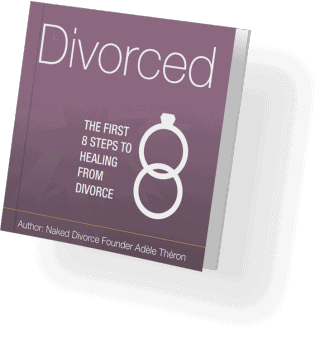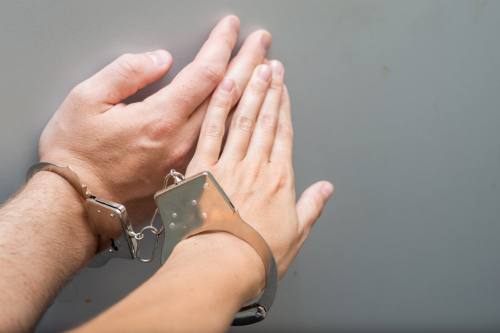
Free e-book: The First 8 Steps to healing from divorce

Alright, folks, let’s crawl our way into the tangled web that is… codependent relationships.
Ever found yourself feeling like you’re doing all the heavy lifting while your partner just sits back and enjoys the ride? Or worse, complains that you don’t appreciate them!
Maybe this looks like you doing all of the actual heavy lifting; managing the house, the kids, the finances, carrying all of the mental load, or maybe this looks like you overly taking responsibility for the relationship itself. If you have found yourself running yourself ragged, exhausted, feeling responsible for more than your fair share, whilst simultaneously being consumed by resentment and failed expectations, then we might just be looking at a codependent situation.

You see, codependency is an issue of imbalance. One partner has their needs met whilst the other scrambles to be the main source of meeting them, utterly abandoning their own needs in the process. If you have a tendency towards people pleasing, fixing or caretaking behaviours then codependency becomes a natural progression of these: We get caught in a trap of making ourselves responsible for the happiness and wellbeing of the other, often not even really knowing what our own needs are in the first place. And when we’re disconnected from knowing and feeling our own needs, we can’t meet them or ask for them to be met. Our focus is now well and truly ‘out there’ and not ‘in here’.
So why would any sane human find themselves in this position? Well at first, it might feel kinda nice, you know? Like, you’re the hero swooping in to save the day or simply like you’re ‘winning at love’. Often times we get a great payoff from taking such great care of our new-found love. They NEED us. And nothing satisfies a codependent person more than being needed. ‘If they need me, then I am worthy’. Feeling needed is a great source of relief and reassurance when we seek our approval and self-worth from external sources of validation. But trust me, that feeling doesn’t last long. Before you know it, you’re knee-deep in resentment and frustration, wondering why you’re the only one putting in any effort. Your partner, having been well trained by – YOU – has normalised the whole shebang and the stage has been set for you to be the primary giver and meeter-of-needs whilst the other gladly receives and wonders what all the complaining is about. In abusive or otherwise toxic relationships this dynamic can tip over into the realm of the codependent partner utterly abandoning themselves and having no voice at all as they continue to give more just to keep the peace. We walk around on eggshells and make it our principal duty to stay quiet and keep the other one happy, well at least not unhappy. For an unhappy partner is like kryptonite to a codependent; we will work at double-time to ensure that WE maintain the status quo, regardless of how the other is behaving.
Sounds like a hot mess right? It can feel like that, but the great news is this; unlike narcissism, codependency is simply a set of adaptive behaviours, traits and tendencies that can be unlearned and replaced with healthier approaches and boundaries over time.
Perhaps you already recognise yourself in the description above, but here are some more tell-tale signs that you’ve fallen into codependency:
- You feel that it’s your job to save them from themselves: Ever find yourself playing the role of the caretaker, constantly dealing with the aftermath of your partner’s messes? Yup, that’s a red flag, right there!
- You want to change who they areor how they behave: I’m sorry to say, you can’t change other people. No matter how hard you try, they’re going to do what they want to do. So, stop trying to turn them into something they’re not. If you cannot accept them for everything they are AND everything they’re not, then it’s time to reconsider whether this a workable situation.
- Taking time out for self-care makes you feel selfish: Repeat after me: self-care is not selfish. It’s essential. If you’re feeling guilty or anxious for taking time for yourself, it might be time to reassess some things.
- Your general mood depends on their general mood: In a healthy relationship we can witness our partner experiencing negative emotions without immediately defaulting to ‘what did I do wrong?’ or making it somehow our responsibility to fix. If you have become the temperature gauge in the relationship, then something is off.
- It’s difficult to explain how you’re feeling about your relationship: If you find yourself struggling to put your feelings into words, it might be because you’re so focused on your partner that you’ve lost sight of yourself in the process. Being disconnected from our authentic selves can also be a sign that you’re stuck in a stress or a trauma response and this will need attention.
- You take responsibility for things that aren’t working even when they are not yours to own: If you are turning yourself inside out like a pretzel trying to figure out ‘what’s wrong with me?’ rather than critically examining ALL of the behaviours and actions within the relationship on BOTH sides.. then we are probably dealing with codependency.
Alright, folks, there you have it. Codependent relationships might be tricky beasts, but with a little bit of awareness and a whole lot of self-love, you can break free from their clutches. Stay strong, stay true to yourself, and remember, you deserve better and can create better!
If you’d like to explore the topic of codependency and learn how to break free, then please do get in touch.

Salli Andrews
For a more personalized approach to your healing journey, book a free Clarity Call now. Our coaches are here to help you take your first steps towards healing. Check out our Resources or our Videos on YouTube.

